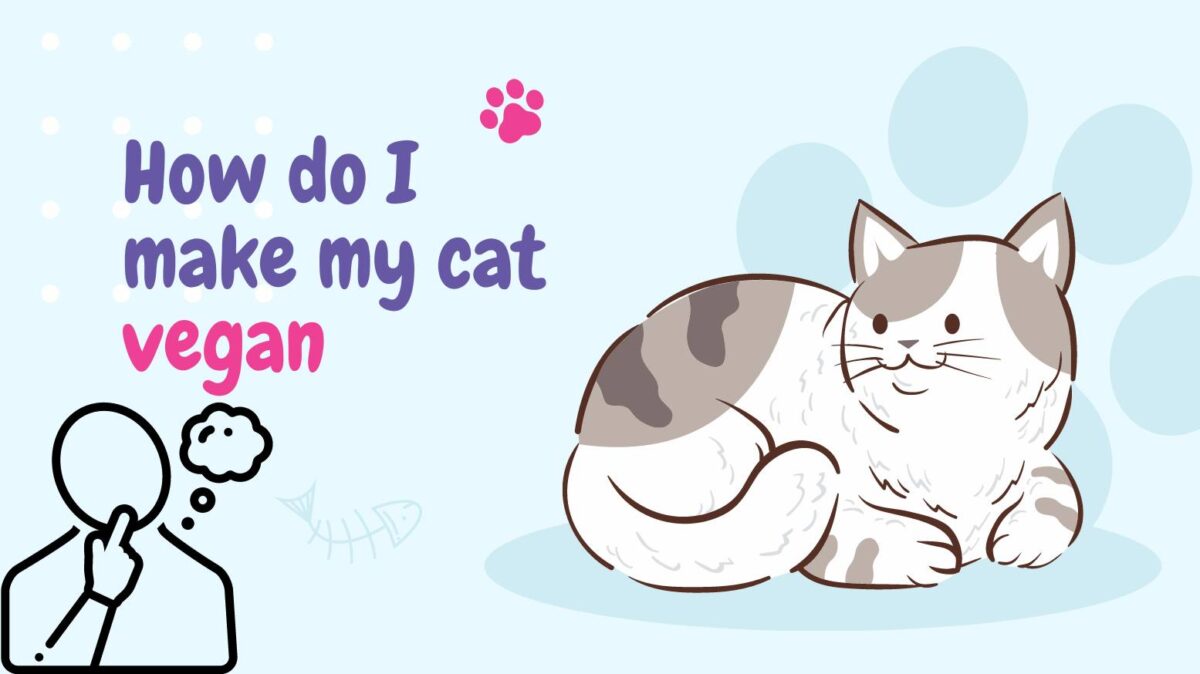Making the switch to a vegan diet for your cat requires thoughtful thought and a dedication to putting your cat’s health and well-being first. For ethical or environmental reasons, some cat owners choose to adopt a vegan lifestyle; nonetheless, it’s important to proceed cautiously and with veterinary assistance when making this change.
Here, we go over how to gradually introduce a vegan diet to your cat while maintaining a balance between your ethical standards and your cat’s dietary requirements.
What are the steps to consider when trying to make your cat vegan?
Speak with a Veterinarian
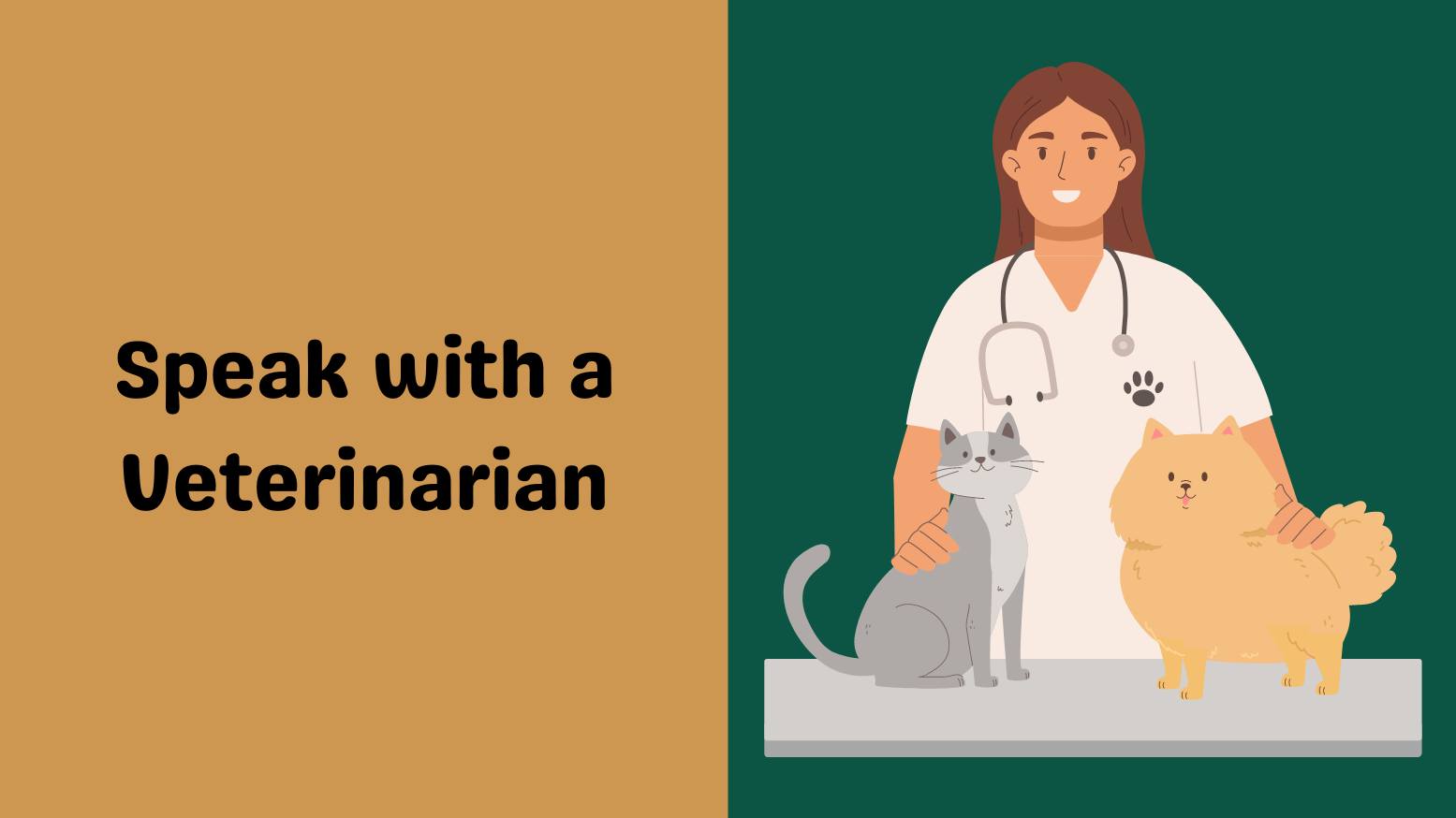
See a veterinarian before making any dietary modifications. An expert evaluation of your cat’s health will yield insightful information, and the veterinarian can suggest appropriate dietary supplements to ease the transition.
Commercial Vegan Cat Food
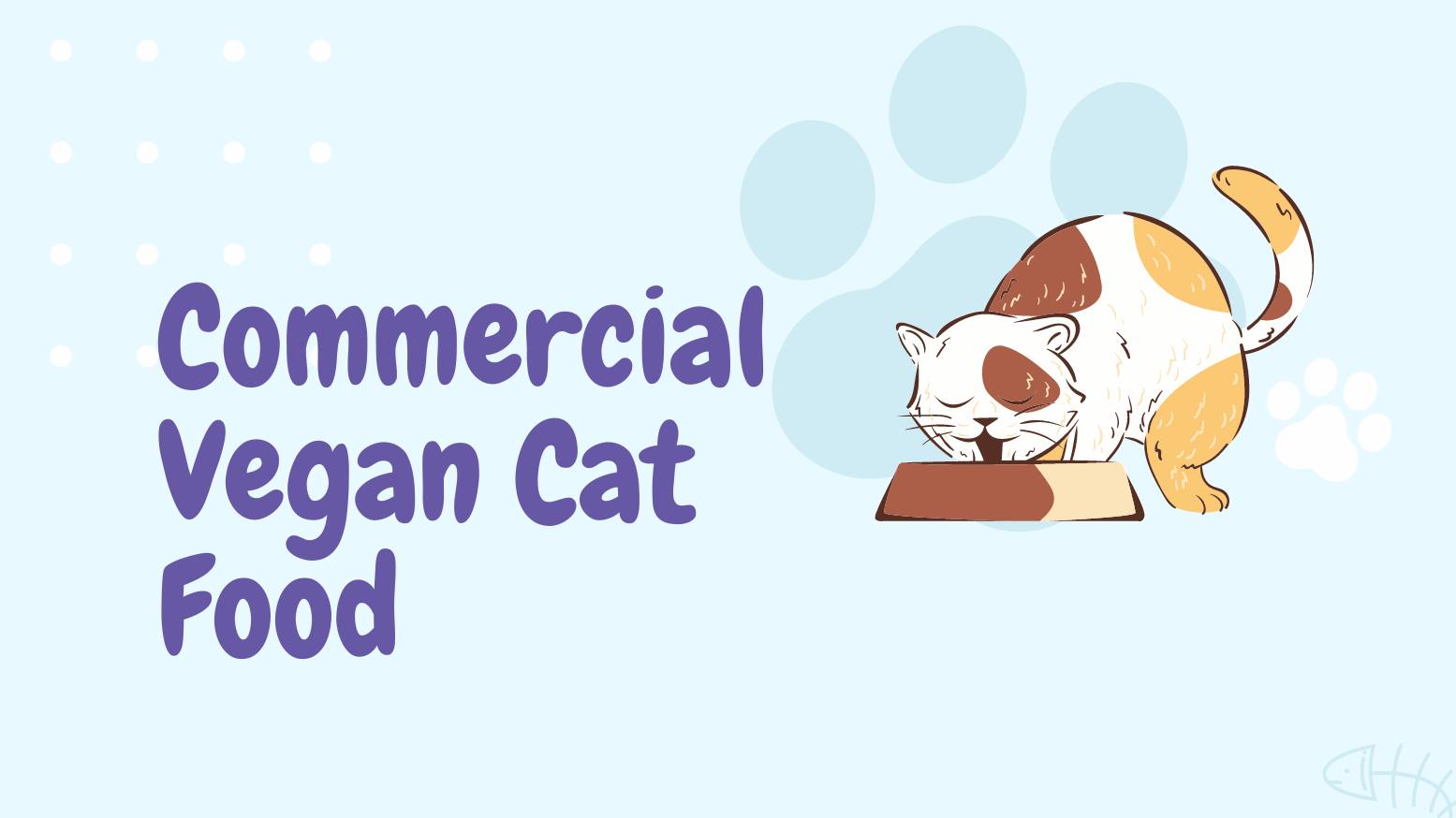
Reputable companies sell vegan cat food that is prepared to satisfy the nutritional needs of cats without using any components that come from animals. When choosing a high-quality product, it’s critical to read the labels for important nutrients.
Homemade Vegan Cat Food
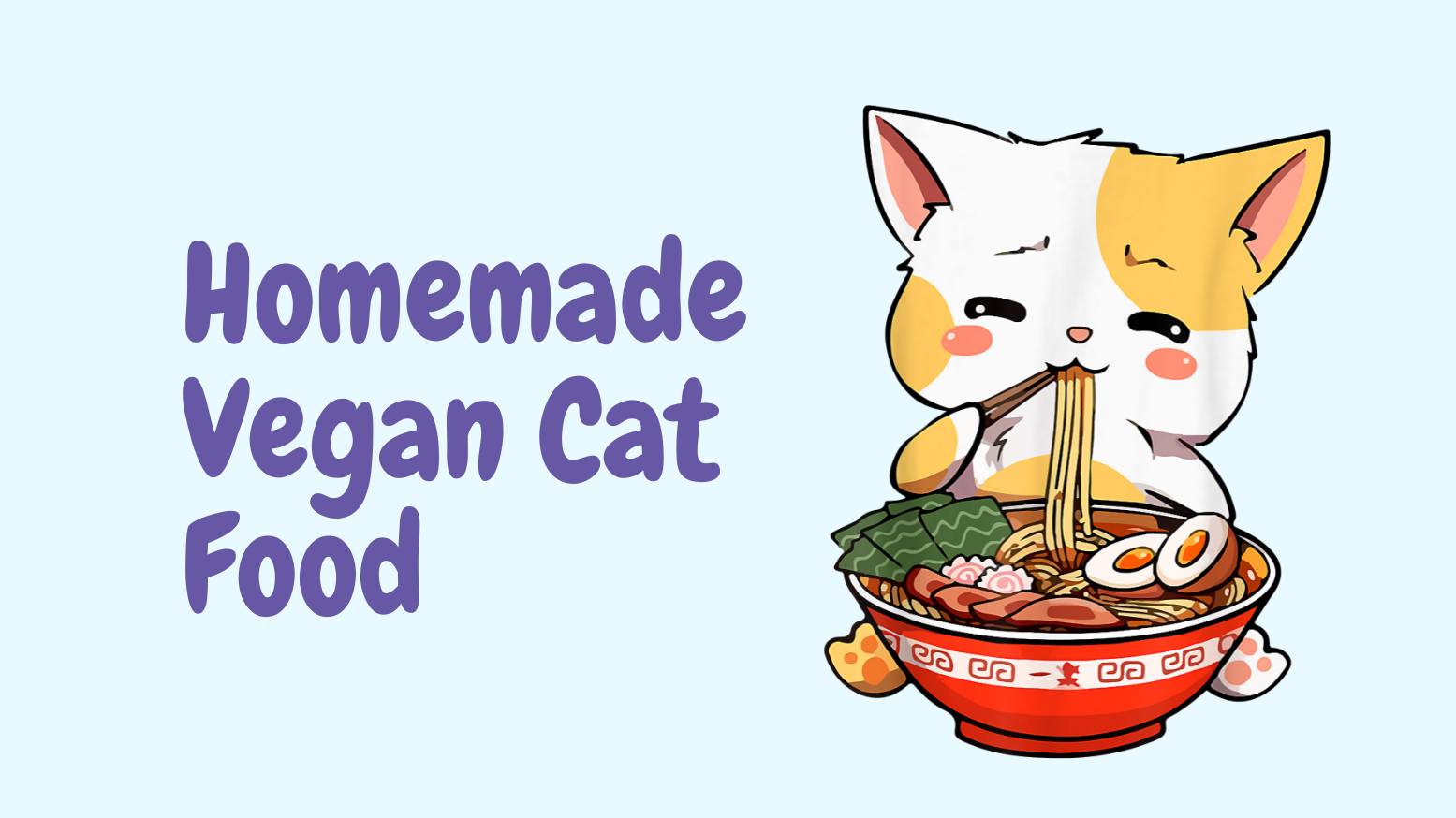
- Follow these rules when preparing homemade cat food:
- Use cooked and soaked grains, beans, or peas as the base ingredients.
- Add extra nutrition by including cooked or raw veggies (e.g., carrots, spinach, or zucchini).
- Add necessary supplements, such as vitamin B12 and taurine, to your diet.
Foods to Avoid
Since cats require animal protein, give them plenty of plant-based sources of it and stay away from foods heavy in carbohydrates.
Change Gradually
Cats are habitual beings. They are more acclimated to a gradual transfer of food that is mixed with the old. Throughout the procedure, keep an eye on their well-being and vitality.
Observe Your Cat
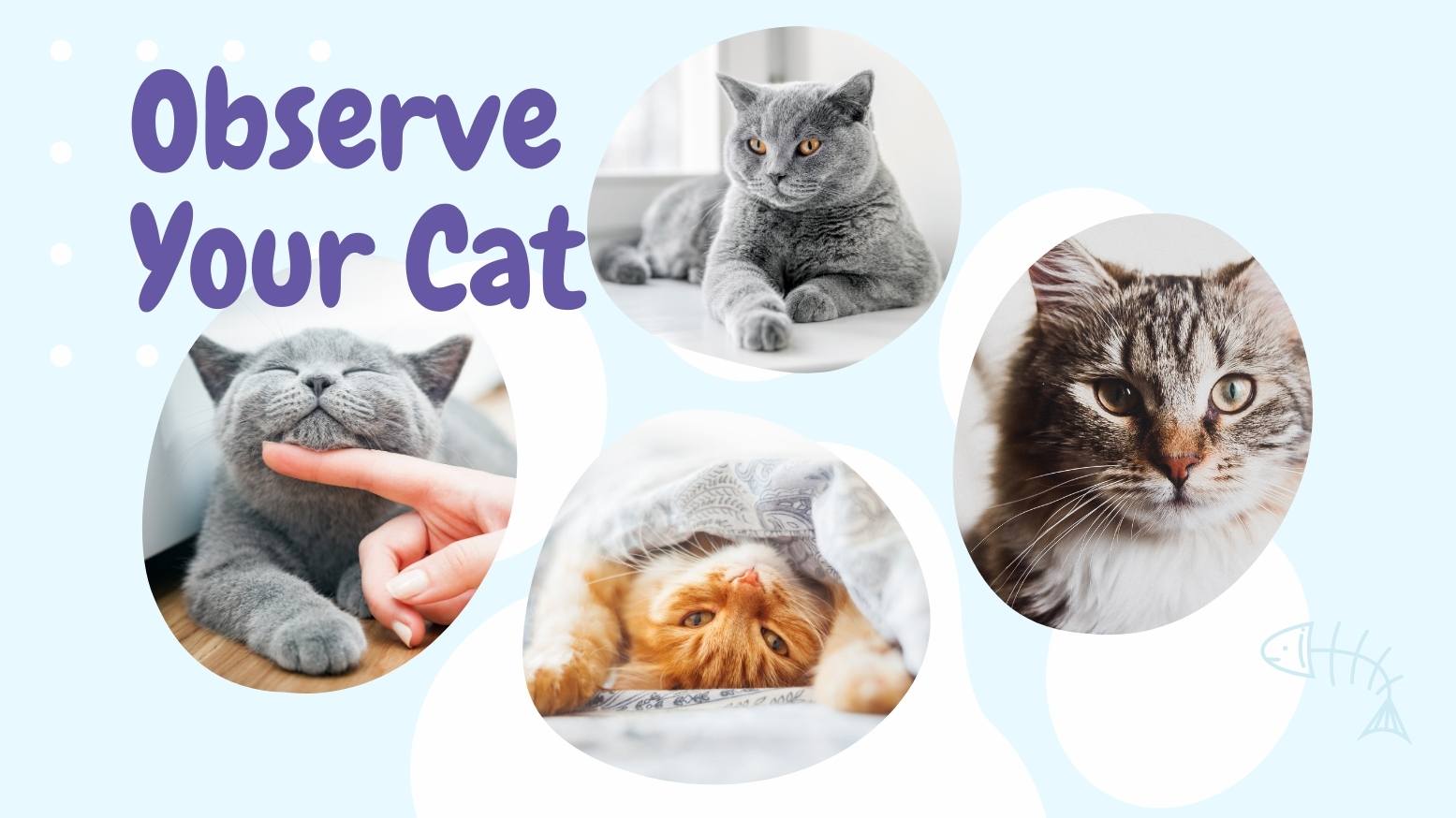
Take note of any changes in weight, coat condition, or demeanor. As soon as any negative consequences are noticed, speak with the veterinarian.
Taurine Deficiency
Supplements or diets supplemented with taurine should be fed to cats to meet their needs for this vital component of heart health. Individual differences matter, and certain cats might adjust more readily than others.
Successful vegan cat story
While adopting a vegan diet can be difficult for cats, certain feline buddies have become well-known for their plant-based lifestyle. These well-known vegan cats are motivational examples of how well-balanced vegan diets may support life.
Sir Meowington
One such famous cat is the daring Sir Meowington, who is the feline partner of well-known DJ and musician Deadmau5. Social media posts about Sir Meowington’s vegan journey have shown off his active and nutritious way of living. He loves watermelon and took the internet by storm with his cute watermelon-chowing videos.
Cheetah
Furthermore, Cheetah, the vegan influencer Tabitha Brown’s rescued cat, has drawn notice for doing well on a plant-based diet. Cheetah’s mischievous activities and radiant health have come to symbolize the potential of morally and health-aware choices for feline friends.
A cat’s diet transition to a vegan one requires careful balancing of moral decisions with dietary needs. A veterinarian’s advice and close observation of your cat’s health are essential whether you choose to make homemade meals or purchase vegan cat food.
While some well-known vegan cats provide motivation, it’s important to recognize that not all cats benefit from a vegan diet and that each cat’s demands should be taken into consideration. Our commitment to our feline friends’ health should be the driving force behind their transition to a plant-based diet, guaranteeing them a happy and satisfying existence.
You may also like:
- Why did you go vegan
- What are the main reasons you do not want to go vegan
- Is it possible for a vegan to ensure that no animals are harmed in the production of their food without growing it themselves
FAQs
1. Can all cats be transitioned to a vegan diet?
Transitioning a cat to a vegan diet is not universally suitable. While some cats may adapt well, individual factors like age, health, and preferences play a crucial role. Always consult with a veterinarian before making significant dietary changes.
2. What should be considered when choosing vegan cat food?
Look for reputable brands offering commercially available vegan cat food. Ensure the product is formulated to meet feline nutritional requirements and check labels for essential nutrients. Consulting a veterinarian is essential for guidance.
3. How can I make homemade vegan cat food?
When making homemade vegan cat food, use a base of soaked and cooked grains, beans, or peas. Integrate cooked or raw vegetables for added nutrients and include essential supplements like taurine and vitamin B12. Avoid high-carbohydrate foods.
4. What signs should I watch for during the transition?
Pay close attention to changes in behavior, coat condition, and weight. If adverse effects are noted, such as lethargy or digestive issues, consult with a veterinarian promptly to adjust the transition process.
5. Are there famous cats thriving on a vegan diet?
Yes, some famous cats, like Sir Meowington and Cheetah, have thrived on carefully curated vegan diets. While their stories inspire, it’s essential to remember that individual needs vary, and professional guidance is crucial.
6. Why is taurine important in a vegan cat diet?
Taurine is crucial for a cat’s heart health. In a vegan diet, ensure adequate taurine through supplements or fortified foods. Individual variations among cats may require tailored adjustments to meet their specific nutritional needs.

